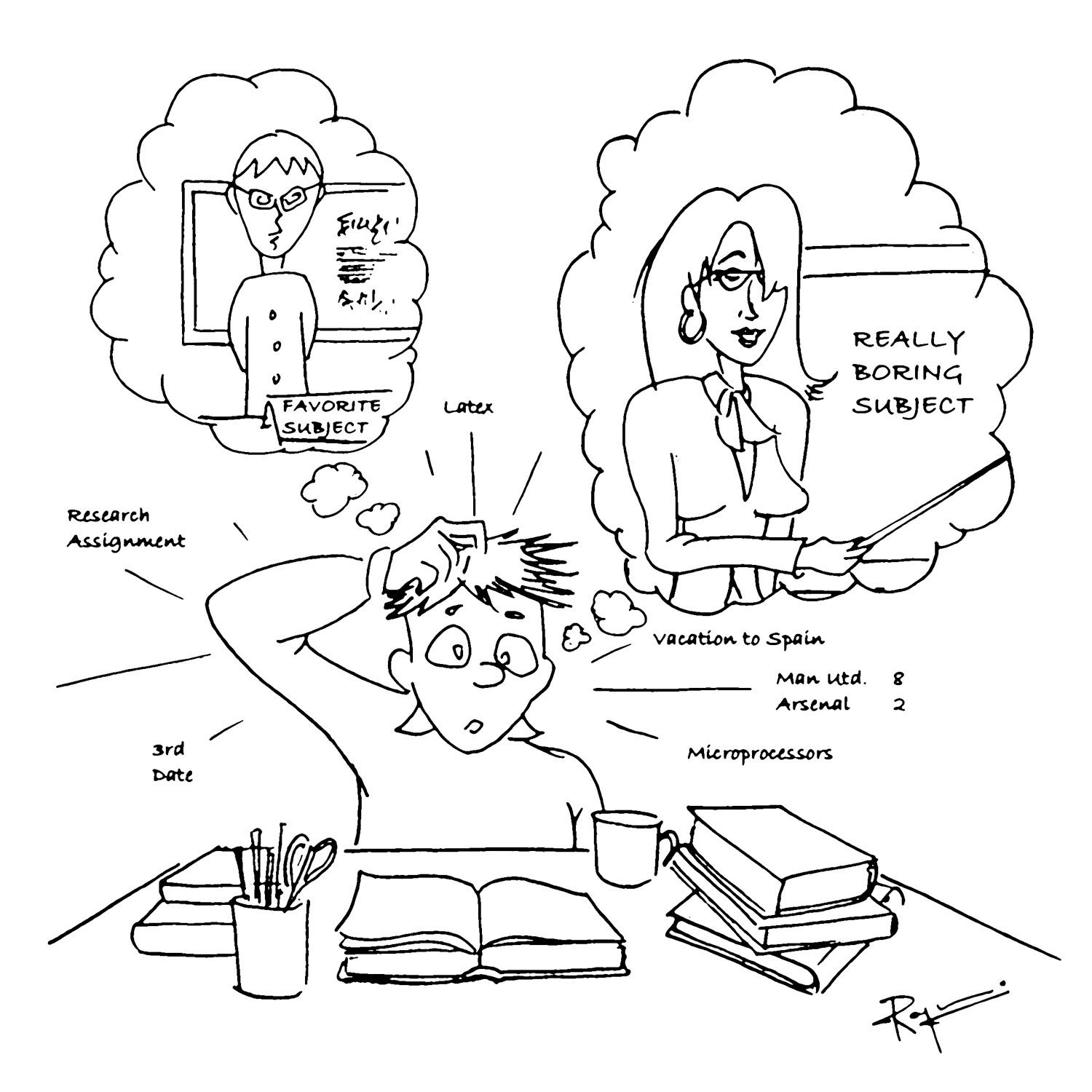Initially choosing the right courses is important, but it’s the second semester courses and thesis work that are ‘pretty predictive of career success after graduation’.
TU Delft’s new academic year begins on 8 September. To help new students feel comfortable and adapt to the TU environment, the International Office has organized many parties and events over the past weeks. But now the most important challenge for new -and returning – students begins: to successfully complete their studies at TU Delft, a task that will be intriguing but also difficult at times.
Past experience has shown that one important reason why some students face difficulties in their studies is because they failed to select the proper courses. Hence, finding the right mix of courses as quickly as possible is a key to future success.
Anil Kunnappillil Madhusudhanan, a recent graduate from the Delft Center for Systems & Control department, advises students to “plan their courses well, especially regarding work load division among the four quarters. You must be consistent in your courses from day one, or else you’ll end up in trouble.”
Madhusudhanan advises students “to take around 15 ECTS per quarter in courses the student wants to specialize in. Then assess yourself at the end of first quarter, asking yourself: ‘Was I able to handle 15 ECTS well? Can I afford to take more ECTS per quarter or should I reduce the number of ECTS next quarter?’ And when selecting courses, students should definitely consult their programme coordinators, in order to ensure that your course list also meets department requirements.”
Imran Asraf, a second-year MSc student in Embedded Systems, says: “My advice is to not miss lectures, and it’s especially fruitful if you prepare the lecture content before going to class and revise it afterwards. And spend time in discussions with your colleagues and lecturers.”
Asraf says students should decide their specialization tracks as soon as possible to prevent problems later: “On average, I also think student shouldn’t take less than 15 ECTS, as more ECTS in the second-year can become burdensome when combined with the thesis work.”
TU Delft appoints academic counselors at every faculty who help students’ select their courses. Marja Brand, an academic counselor at the faculty of Technology, Policy and Management, advises international students “to follow the classes and complete the assignments together with other students from your group. Don’t limit your contacts to fellow students from your home country. You need to broaden your academic skills with ‘Dutch’ academic skills.”
According to Brand, “choosing elective courses can be difficult. Not all courses are scheduled according to a student’s wishes. Elective courses in the first quarter are not very predictive for the student’s success in the end. Courses in the second semester and thesis work however are pretty predictive for career success after graduation. Discuss your plans in advance with an academic counselor, so you can work out a good elective plan.”
New students can make appointments with academic counselors at their faculty’s service point, and Brand stresses the importance of doing so for a variety of reasons. “One of our students had difficulties with assignments and wasn’t aware of TU Delft’s anti-plagiarism rules. He copied from the internet and also from his classmate’s material for an assignment. Fortunately, the classmate mediated and guided him in making proper references, otherwise the exam committee would’ve expelled him for one year.”
The Russian scientists gained worldwide fame for their groundbreaking discovery of graphene, a stable conductor that holds great promise for developing chips in electrical devices and as a material for touchscreens.
“It’s fantastic news”, says Professor Lieven Vandersypen, of Delft’s Kavli Institute of Nanoscience. “When we first heard about it at the laboratory, everyone was smiling.” Vandersypen has known Novoselov and Geim for years.
“They’re very creative scientists and have done marvellous research”, adds Ekkes Brück, Professor of Fundamental Aspects of Materials and Energy.
Geim and Novoselov have close links with TU Delft, where both men have given lectures. Geim, who worked at the University of Nijmegen from 1994 to 2001, was awarded an honorary doctorate by TU Delft last year. “When he received his doctorate, I predicted that one day he would win the Nobel Prize. I’m very happy I was right”, says Professor Brück, who was Geim’s second honorary doctoral advisor at Delft.
The story of how Geim and Novoselov discovered graphene is legendary. In search of a one-atom layer of graphite, they placed a piece of graphite on scotch tape. Very small bits of the graphite stuck to the tape, which they then put under a microscope and discovered graphene. “This approach shows how incredibly creative they are”, says Professor Leo Kouwenhoven, who was Geim’s first doctoral advisor for his honorary TU Delft doctorate.
Graphene has remarkable features. “It’s the only one atom layered material we can isolate that is stable”, says Kouwenhoven. “Electrons move at a constant speed through graphene; it seems as if they don’t have any mass.
Other materials are not as stable, Vandersypen adds. “In future graphene could be used in RF transistors in cell phones or as a material for making LCD and touchscreens, because it’s a transparent conductor. At the moment these screens are made of indiumtinoxide, which is a difficult and expensive material. However, before we can use graphene, there are some tough nuts to crack. It still must be produced on a large scale.”
After the scotch tape breakthrough five years ago, graphene became a hype. Numerous scientists are currently working with this material, including Prof. Vandersypen, who conducts fundamental research on graphene. “At the moment there are over fifty publications a month on graphene”, he says.
Because Geim has Dutch nationality, Dutch newspapers, are proclaiming that a ‘Nederlander’ has won the Nobel Prize. Kouwenhoven: “That’s an exaggeration. He hardly speaks Dutch, was born in Russia, and works in England. Nevertheless, we’re very proud of his achievement and prize.”



Comments are closed.